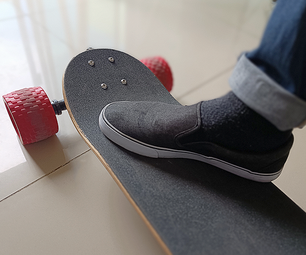Introduction: Turn Your Office Into a Kayak
In an effort to explore low cost and sustainable ways of taking to the waves, I have developed this kayak build (based on a traditional Inuit Qayaq), which uses or rather re-uses the most readily available materials. This is instead of relying on expensive and polluting polymers, exotic plywood or even sealskin and whale ribs which make sense in the arctic, but not most other places. My choice of materials then was: suits, desks and computers.
The build uses a traditional 'skin-on-frame' method, which depends upon long batons pulled together at bow and stern and spaced in between with bulkheads. These wooden parts were made from a solid wood desktop. They were lashed together with wire stripped out of computers.
The frame is covered with a 'skin'. I made this from unpicking business suits and sewing them into a large sheet, wrapping around the frame and waterproofing it with an oil/wax mix.
The plans for dimensions were loosely based upon the excellent Yostwerks sea bee. That site can be found through this link:
http://yostwerks.com/WoodSOFMain.html
Step 1: Source and Cut Solid Wood Desk
I searched local shops and house clearances, but in the end had to buy a locally located desk online (through a popular internet trading site). Solid wood desks are not easy to find. You can't use particle board.
Cut the desktop into strips. The size of the desktop will determine the length of the kayak. You will need five or more lengths of wood. I was able to cut fifteen batons from my desktop and subsequently joined the batons into lengths of three giving a total of five bits of wood a bit over 15 foot in length.
one (sturdiest) length is for the keel. Two for gunwhales which edge the deck of the craft. at least two are for the 'stringers' that make up the rest of the hull line.
Step 2: Steaming
You will most likely have to steam and bend the batons. You can use a
kettle with steam pipe into a long tube (eg a heating tube). Insulate it to get it hot enough then bend the wood once steamed. Steam is hot! Don't burn yourself or try this if you aren't sure about how to use this equipment safely.
Step 3: Mount on a 'strongback' and Cut and Fit Bulkheads
Next cut the five bulkheads (aka cross-sections) to the correct size and shape. All five are (half) shown on this plan up to their midline. In other words you have to double the shape on the other side of the dotted line as if it were a mirror, then you'll get the complete shape for each of them. You'll see how they should look from other images later in the build.
Once you have the bulkheads and stringers/keel etc you will need a strongback to fit the lot together on. A strongback is a firm base which you attach the bulkheads to - at the right spacing and height. I used the rest of the desk to make mine.
Attach the bulkheads at the right height (the bottom dimension on the plan) above the line of the strongback. You can do this with temporary blocks, which will also hold the thing in place.
The bulkheads go at the following spacings (distance in cm from bow): #1 at 61; #2 at 122; #3 at 173; #4 at 251; #5 at 318. stern is at 396 cm from bow.
Then you can fit the stringers, keel and gunwhales on, holding them temporarily with elastic chords or tape.
Step 4: Lash Together
I used stripped out wire from the computer to last the batons to the bulkheads. You can also see where I put slight cuts along them to help smooth bending without breaking (this is called kerning I believe). I needed to reinforce the cross-sections, but this depends on the wood you have available to make them.
Cut boards for stern and bow, cutting and lashing the stringers, keel and gunwhales to fit.
You have nearly finished making the frame. You still need to add a deck stringer from near the bow to the top of the thrid bulkhead. You can see this space where this will fit in these images. Exact dimensions are less critical for this.
Step 5: Skin
Acquire a number of discarded suits ('lounge' suits aka business suits). 3 should be enough. Using a stitch ripper (a small prongy thing which unpicks stitches) you can fillet the suits into useable panels.
Sew these together with waxed thread.
Wrap around the frame and sew up the skin removing any excess.
Step 6: Waterproofing
You can 'dope' your skin with a number of different materials. Gloss paint will work, as will many glues. Linseed oil is a traditional material - used on coracles and curraghs - although pitch (from trees) is more usual.
I used linseed oil mixed with a little wax. Applying the mixture hot will help it soak in. Several coats may be needed with drying time between.
Step 7: Post-beaurocratic Jetsam Takes to the Waves
Spare materials can be used in other ways to make sure your project has minimal waste.
Ensure you know what you are doing if you take this craft into water and wear a floatation device.

Runner Up in the
Outdoor Survival Contest









